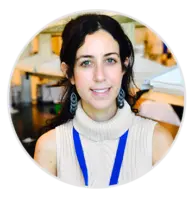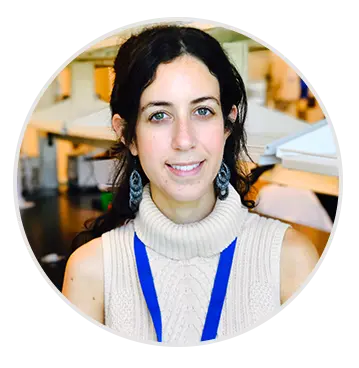Researcher Spotlight: Teresa Sadras, PhD
Beckman Research Institute City of Hope

Though chronic lymphocytic leukemia (CLL) patients with indolent (slow-growing) forms of the disease have a high rates of long-term survival, patients with more aggressive forms of CLL have significantly poorer outcomes. As a result, many CLL researchers have attempted to identify molecular and genetic proteins, or biomarkers, that can better identify which patients are at risk for more aggressive disease, and to develop therapies tailored to their biology. The T-cell associated tyrosine kinase (protein) ZAP70 is associated with other aggressive CLL markers, and correlates with a poor clinical outcome; though ZAP70 is known to play some role in the development of CLL and the BCR signaling pathways, its exact function has not yet been identified. Dr. Sadras’s LRF Postdoctoral Fellowship Grant project will investigate the role of ZAP70 within the BCR pathway in detail and test its response to targeted inhibitors of the BCR pathway, such as ibrutinib (Imbruvica). “I expect the work from my project will shed novel insight into the pathogenesis of high-risk CLL,” she says.
Dr. Sadras received her PhD from the University of Adelaide and Centre for Cancer Biology in Australia and worked as a postdoctoral researcher at the South Australian Health and Medical Research Institute before joining the Beckman Research Institute at the City of Hope, also as a postdoctoral researcher. Dr. Sadras has been designated the Oliver Press MD, PhD, Memorial Postdoctoral Fellow, a distinction given to one LRF Postdoctoral Fellowship recipient each year in memory of Dr. Press, a former LRF Scientific Advisory Board Chair who was committed to the mentorship and development of early career scientists in lymphoma research. “My father is also a scientist, and from a very young age I was immersed in biology, nature, and curiosity to understand how systems worked,” she says. Dr. Sadras notes she is particularly fascinated by how cancer cells “mis-use” normal cellular functions to grow and spread disease. “This same concept is the focus of my current research, as I aim to understand how B-cells from CLL patients utilize the T-cell associated kinase ZAP70 to promote lymphoma growth.”
Dr. Sadras says receiving an LRF grant will allow her to pursue her research and develop her skills as a researcher. “Receiving funding support from the LRF represents a critical step in my career towards becoming an independent investigator and opens ground for me to build collaborations with experienced clinicians and scientists in lymphoma research. I feel highly privileged to be an awardee of an LRF fellowship, and am excited about the research and discoveries
that lie ahead.”


